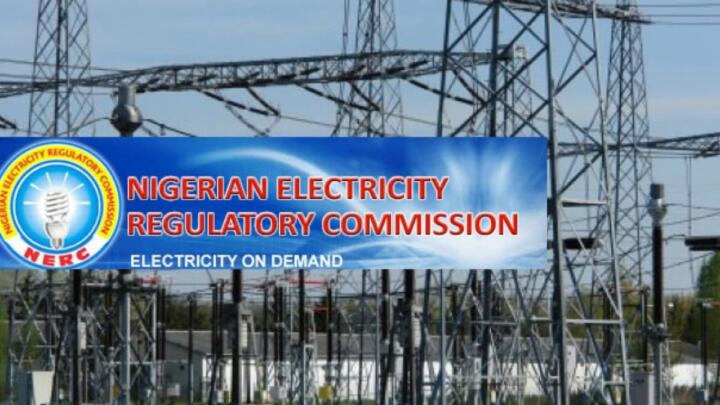The Nigerian Electricity Regulatory Commission (NERC) has disclosed that power generation and distribution companies operating under bilateral arrangements owe the Federal Government a total of $8.5 million in unpaid market invoices. The revelation underscores rising concerns about financial discipline in Nigeria’s electricity market and the challenges facing the transition to a more competitive energy sector.
According to NERC’s latest report on the power industry performance for the third quarter of 2025, several bilateral power companies have defaulted on their financial obligations to the Nigerian Bulk Electricity Trading Plc (NBET) and the Market Operator (MO), both of which are key institutions responsible for the stability and liquidity of the nation’s electricity supply chain.

The Commission explained that these debts were accumulated due to the failure of some operators to remit the required payments for energy supplied through bilateral trading contracts. These contracts, which were introduced as part of the ongoing market reforms, allow power generation companies to sell electricity directly to eligible customers outside the traditional distribution companies (DisCos).
NERC stated that while the introduction of bilateral contracts was meant to enhance efficiency, improve transparency, and encourage private sector participation, the non-compliance of some operators is now creating liquidity risks for the entire power value chain. “The persistent failure of market participants to meet their financial obligations threatens the stability of the electricity market and undermines investor confidence,” the report read in part.
It was also revealed that only 62 percent of total market invoices issued to participants were settled within the period, leaving a significant shortfall that continues to weaken the financial standing of the power sector. The Commission warned that continuous defaults could result in sanctions, including suspension or withdrawal of licenses for erring companies.
Speaking on the issue, NERC Vice Chairman, Dr. Musiliu Oseni, noted that the Commission has begun reviewing compliance levels among all licensed operators and will take strict regulatory measures to ensure prompt payments. “We have an obligation to protect the integrity of the market. Operators who have entered into bilateral arrangements must understand that non-payment will not be tolerated. It affects everyone—from generation to transmission to distribution,” he said.
Oseni emphasized that the Commission would not hesitate to invoke enforcement provisions under the Electricity Act to compel compliance. He added that NERC is working closely with NBET and the Transmission Company of Nigeria (TCN) to strengthen market monitoring frameworks and improve settlement transparency.
In its report, NERC highlighted that Nigeria’s total grid energy generation averaged 4,236 megawatts (MW) during the quarter, with bilateral traders accounting for roughly 7 percent of total off-take. Despite this modest share, their contribution to market debt is disproportionately high, largely due to weak enforcement and inadequate oversight of contractual obligations.
Energy experts say the $8.5 million debt reflects a deeper structural issue within Nigeria’s power sector—one rooted in tariff shortfalls, poor metering, and operational inefficiencies. Dr. Bode Fadeyi, an energy economist, said the growing debt burden could discourage investors from engaging in the bilateral trading space, which was initially designed to attract private capital into the industry. “The entire purpose of bilateral trading is to promote flexibility and efficiency. But if participants keep defaulting, it defeats the intent of the reform,” he explained.
Fadeyi also urged NERC to tighten regulatory enforcement and create a credit risk management system to safeguard market liquidity. “Regulators need to establish strict penalties and possibly credit guarantees to ensure that no player undermines the system,” he added.
In addition to the financial irregularities, the report pointed out that transmission constraints, vandalism, and inconsistent gas supply continued to hamper grid performance. The Commission reiterated that improving infrastructure reliability and payment discipline remain critical for achieving the government’s power sector goals.
The Market Operator, Engr. Edmund Eje**, while speaking on the development, confirmed that steps are being taken to recover the outstanding payments through structured settlements and regulatory interventions. “We have issued notices to all defaulting bilateral market participants. We expect full compliance within the next billing cycle, or they will face market suspension,” he warned.
The debt issue comes at a time when the government is pushing for more private sector involvement in the power industry. Under the Electricity Act 2023, states and private players have been encouraged to develop their own generation and distribution frameworks. However, analysts believe the current situation demonstrates the need for stronger regulation and financial accountability.
Industry stakeholders have also called for improved coordination between the Ministry of Power, NERC, and financial institutions to ensure that all players adhere to contractual obligations. They argue that a sustainable power sector requires a fair and transparent market system where all participants—government and private—honour their commitments.
Meanwhile, consumers continue to face challenges of erratic power supply, high tariffs, and poor customer service. Many Nigerians have expressed frustration that despite ongoing reforms and investments, electricity delivery has yet to meet national demand.
In response, NERC reaffirmed its commitment to creating a viable and transparent electricity market that ensures efficiency and fairness. The Commission said it is working on policies to strengthen liquidity, enhance competition, and protect consumers. “Our ultimate goal is to build a power sector that works for everyone—operators, investors, and end-users alike,” Oseni concluded.
With over $8.5 million still outstanding, experts warn that if immediate actions are not taken, the liquidity gap could widen further, deepening the sector’s financial strain. The coming months will be crucial as the Commission enforces compliance and pushes for full payment recovery—steps seen as essential to restoring credibility in Nigeria’s power market and ensuring long-term energy stability.
Support InfoStride News' Credible Journalism: Only credible journalism can guarantee a fair, accountable and transparent society, including democracy and government. It involves a lot of efforts and money. We need your support. Click here to Donate
